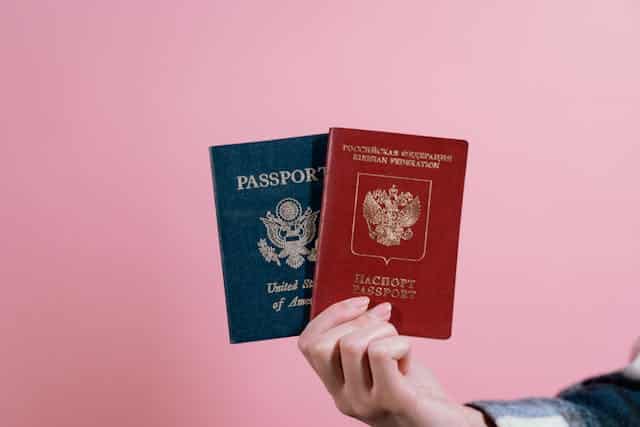Every translator should know that being a translator involves much more than just being bilingual. Being a translator includes the ability to interpret and transcribe a message that adapts the most to a specific target audience while also dealing with the Linguistic and Cultural Challenges in translation.
Translation should always happen while keeping the purpose of the translation in mind, as well as the social and cultural factors that affect the target audience.
The 5 Most Important Translation Challenges
As you can already see, being a professional translator involves many challenges. In this article we will have a look at the most relevant translation challenges frequently faced by translators:
1. Linguistic Challenges in Translation

The first linguistic challenge that good translators must overcome is the need to avoid literally translation, also known as word to word translation. Translating expressions literally does not usually work. Its meaning might completely change, which may lead to awkward situations like false friends.
Each language is mostly composed by unique words or expressions. But keep in mind that some words or expressions may also be spelled the same way in two languages. This is particularly dangerous when translating official documents in the business or legal environment.
The second linguistic challenge faced by translators is the constant change and shift in the number of languages and dialects. There are currently over 7000 existing languages in the world and each one of them has its own unique origin, roots and structure. A translator must also also consider the close to infinite regional dialects that may exist.
These specific language forms that are spoken in specific regions may have words with different uses or sound that can be pronounced differently. One good example is Arabic language. Arabic is spoken in more than 20 countries, however, these countries don’t have the same version of Arabic. It would be difficult for Moroccans to understand the Arabic that is generally being spoken in Iraq.
English has over 160 different dialects all around the world. And this number is rapidly increasing thanks to the differences in delivery and pronunciation in local cultures around the world.
This linguistic deviation into dialects plus the rapid evolution of languages poses one of the biggest challenges for translators. Translators must never stop learning to stay up to date with every new dialect or change in a language.

2. Cultural Challenges in Translation
Each country has its own culture and way of communicating messages. Think about language, symbols, shorthand, etc. These messages might get a different meaning when different cultural backgrounds communicate. This is crucial for translators because their work is not effective if it is not being interpreted correctly.
Therefore, translators should not only know the languages that they are working with, but also the cultural background must be completely understood in order to translate a text accordingly and accurately.
This requires a combination of two disciplines: Translation and interpretation, because of the need to contemplate the translated word inside a written context and a spoken context.
TranslateDay website is also the only Legal Translation App ready to use on mobile devices via Chrome. Download our app!
3. Sector Expertise and Multidisciplinary Background Needs
As you may already know, there are many different types of translation. All these types of translation take place within a different sector and cannot be translated by a translator who does not have knowledge about the field.
Laws for example, also known as legal translation, have a whole set of rules and cannot be simply translated word for word. Each type of translation takes place within a different sector and cannot be translated by a translator who does not have knowledge about the field.
Another skill that a professional translated should have is creativity. For example when you want to translate a slogan that rhymes, it is not always rhyming when you translate it literally to another language.
This slogan should be adapted in a different way by the translator, who also has to consider the target audience’s society and lifestyle for example. This requires a lot of creativity from the translator, and makes Literary Translation one of the hardest disciplines in translation.
Business License Translation Service
You have a Local Business and want to expand to a foreign country? Then you need a Business Document Translation. Trust us to get your Business License translated to more than 65 languages, we translate business documents online in less than 24 hours and every translation is certified.
Translate Now4. Specialized Translation or Specific Content Translation
A big challenge for many translators comes when they have to translate specific or specialized content. Think about films. When a translator translates films, he has to use the right words and the right expressions in a way that it will adapt the scene to keep the story coherent.
Another example is when translators are translating texts from books or poems. These texts require to be translated carefully and specifically in order to keep the original message and writing style that makes the author unique. Translating specific contents is a challenging task and requires a lot of attention from translators.
5. Loss of Translation / Untranslatable Words
Some words in one language do not have a direct translation in other languages. When this happens, we call it loss of translation. Some examples of these are the following:
- Shemomedjam. This term in Georgian refers eating something because it’s so yummy and delicious, even though you’re not hungry.
- Akihi. This term comes from the Hawaiian and is used when you ask someone from directions and immediately forget what they said as soon as you walk off.
- Kaizen (改善) is a Japanese term which means ‘change for the better’ or ‘continuous improvement.’
- Anteayer. This single word means ‘the day before yesterday’ in the Spanish language. In some parts of Latin America antier is used instead.
When a language has a specific word to describe a happening, it can be a challenge to find an alternative expression in another language.
If you are interested on this topic, make sure you check our article on How to deal with untranslatable words
Conclusion
As we have seen, a translator needs to have more skills than just knowing two languages to be suitable for translating all kinds of document.
This is because there are many more challenges in translation and professional translation than just being able to find the correct words. You also need to deliver the right message. A good translator should know how to localize messages in an accurate way and be aware of the challenges.
Thanks for staying until the end, we hope this article helped you learn something new on the main challenges of translation. Please do not forget to check our Blog to learn about this and other topics related to translation.
TranslateDay provides Legal Documents Translation for all kinds documents. It has been able to build an untarnishable trust with their prompt and accurate interpretation. It has become a fast rising player in the translation industry.


